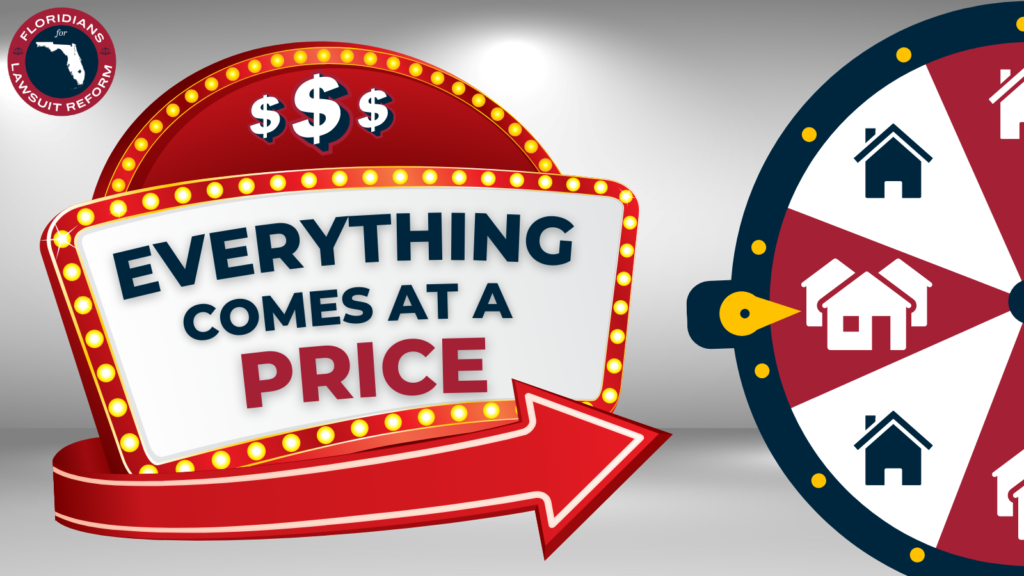
Guest columnist
Shawn and Kim have lived in their dream home for over 20 years. They noticed the tile roof started to look a little worn and inquired about a new roof. The quote for the new roof was over $50,000. They decided to hold off on getting a new roof due to the expense.
A few weeks later, Matt, a neighborhood solicitor with a roofing company, knocked on their door, informing them that they can get a new roof for free from Shawn and Kim’s homeowner’s insurance company. This sounded like a dream come true. They won’t have to spend $50,000 and get a free roof.
Sounds great, right?
On a daily basis, many people become victims of this hustle where the roofing solicitor “takes care of everything,” submits an inflated claim with the insurance company, and then threatens a lawsuit if the company challenges the overpriced roof costs submitted. If the company doesn’t pay, a handful of law firms have a cottage industry filing hundreds of roof lawsuits, knowing they will win several for millions in attorney’s fees.
Who loses in this scenario? The average homeowner. Every day, all Floridians who are homeowners are paying for these free roofs with increased premiums that, in some cases, are double last year’s premiums.
This practice of knocking on doors and soliciting for claims, so that third parties (roofers and attorneys) can make money off of you, the homeowner, has cost every person in this state. Even if you don’t own a home and you rent, the landlord is raising the price because their insurance has shot up.
The shift in mentality is that you pay a premium that has gotten crazy expensive; therefore, you are owed a return on investment from that policy. This is crushing the purpose of insurance. It is meant to be there when you have a claim of what’s called a peril.
If your roof leaks because it’s 15 to 20 years old, that is normal wear and tear and not a reason to file an insurance claim. Normal wear and tear repairs are to be paid by the homeowner and should not trigger the insurance policy to pay out under a peril. But again, the greed of many homeowners wanting something in return from paying their premium is affecting all 7.5 million policyholders. It’s going to take all parties involved to sit down at the table and work together toward common sense solutions. No one side will get everything they want, but it’s beyond clear that the path we are heading down is disastrous.
Florida can’t print money like the U.S. government. With a $105-billion state budget, and Citizens Insurance Company growing at an alarming rapid growth of 31,000 policies in one week alone, and over $330 billion in exposure, Florida is one Category 3 or bigger storm away from bankruptcy.
Of course, of that $330 billion in exposure, a storm would have to cover the whole state. Well, not really, considering Citizens’ policies are concentrated primarily in Central Florida, continuing through South Florida and into the Keys. A storm hitting the southern portion of the state could feasibly bankrupt the state of Florida.
As an insurance agent for more than 20 years, I can say there’s never been a market this bad for policyholders. That’s a big statement considering we were not even close to having these type of challenges after eight storms hit in 2004 and 2005.
There are insurance companies going out of business left and right, and many more insurance companies that have either pulled out of Florida altogether, or temporarily suspended writing new policies.
How did we get here? When it comes to property insurance lawsuits, Florida had 116,000 suits filed in 2021, and no other state had more than 900. Florida has only 8% of all property insurance claims filed in the U.S., yet we have almost 80% of all lawsuits in the U.S. This abuse is unsustainable.
It is easy for the public to say insurance companies are evil; that they have all the money, and they never pay claims. There are many good insurance companies out there both big and small that get it right. And yes, every now and then a great company makes a mistake, and denies a claim. That is why there are public adjusters, and attorneys.
But statistics don’t lie, and the proliferation of attorney-represented claims, driving up the costs, has far outpaced the insurance companies that make mistakes on some claims.
